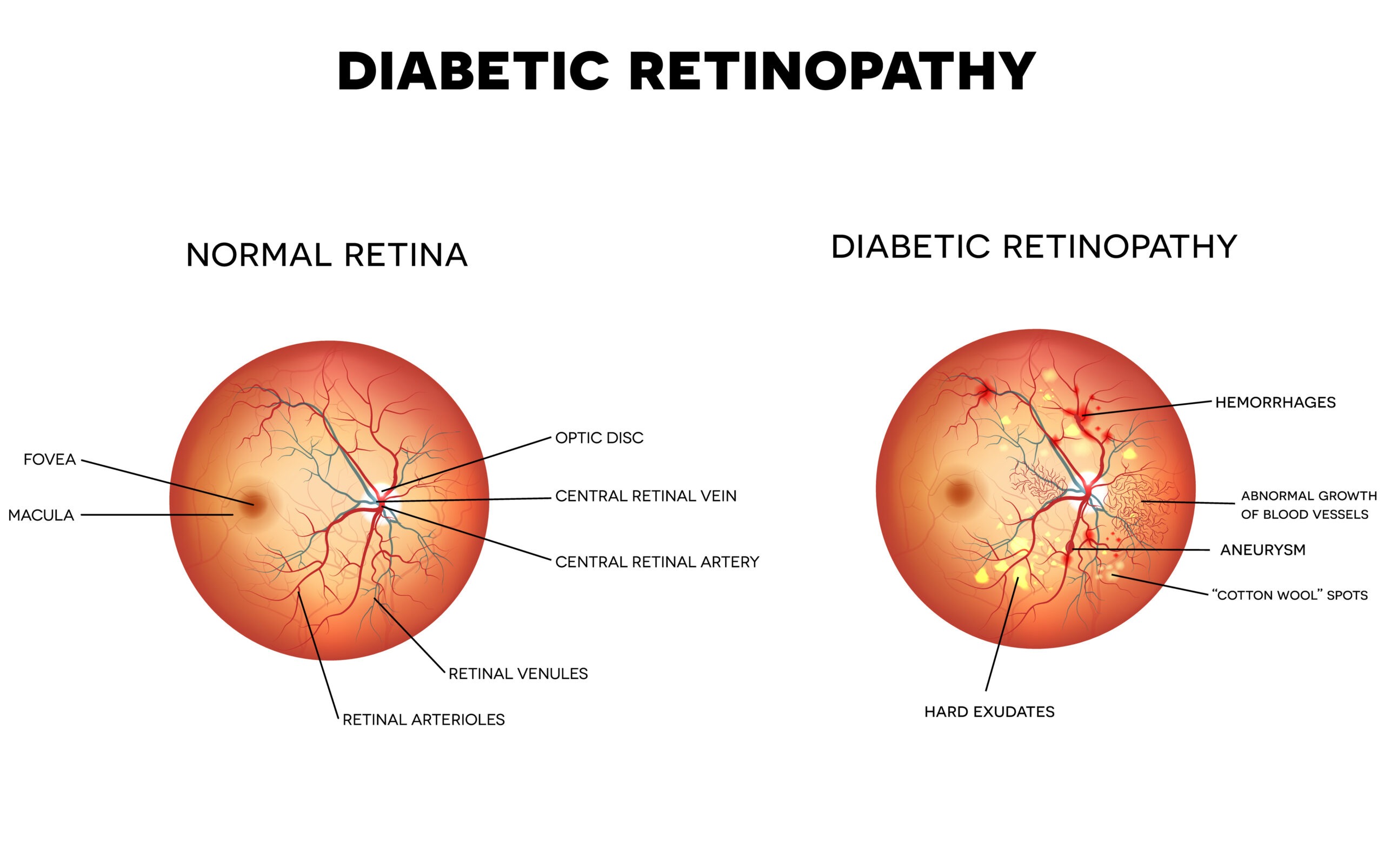What is diabetic retinopathy?
Diabetic retinopathy is a diabetes-related eye condition that affects the blood vessels in the retina, the light-sensitive tissue at the back of the eye. It's the leading cause of vision loss among people with diabetes and can lead to severe visual impairment if left untreated.

What are the symptoms of diabetic retinopathy?
In its early stages, diabetic retinopathy might not present any symptoms. As it advances, you may experience:
- Floaters: Spots or dark strings floating in your vision.
- Blurry Vision: Vision that becomes progressively blurred.
- Fluctuating Vision: Vision that changes with blood sugar levels.
- Dark or Empty Areas: Loss of vision in certain areas.
How is diabetic retinopathy diagnosed?
An eye care professional will diagnose diabetic retinopathy through:
- Dilated Eye Exam: The pupils are dilated to examine the retina and optic nerve.
- Fluorescein Angiography: A dye is injected into a vein to highlight blood vessels in the retina.
- Optical Coherence Tomography: A non-invasive imaging test that captures detailed cross-section images of the retina.
Managing diabetic retinopathy
Managing diabetes is crucial to preventing and slowing the progression of diabetic retinopathy. In addition:
- Regular Eye Exams: Annual eye exams are recommended for early detection and treatment.
- Blood Sugar Control: Maintain healthy blood sugar levels through diet, exercise, and medication as prescribed by your healthcare provider.
- Blood Pressure Management: Control high blood pressure to reduce the risk of diabetic retinopathy.
- Laser Therapy: Laser treatments such as focal laser or scatter laser can help manage abnormal blood vessels.
- Anti-VEGF Injections: Intravitreal injections can help reduce swelling and control the growth of abnormal blood vessels.
Protect your vision
If you have diabetes, taking steps to manage your condition and attending regular eye exams are essential for protecting your vision. Early detection and timely treatment can significantly improve outcomes and preserve your sight.
Remember, if you have diabetes or are experiencing changes in your vision, consult an eye care professional for proper evaluation and personalized guidance.

